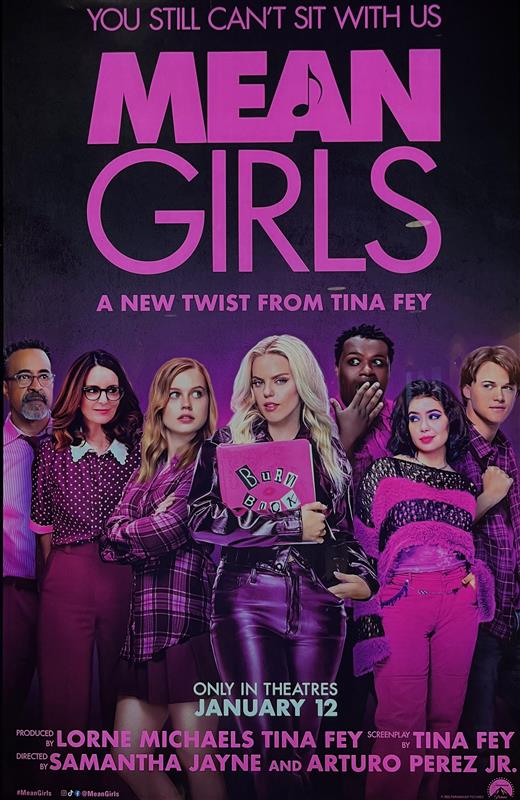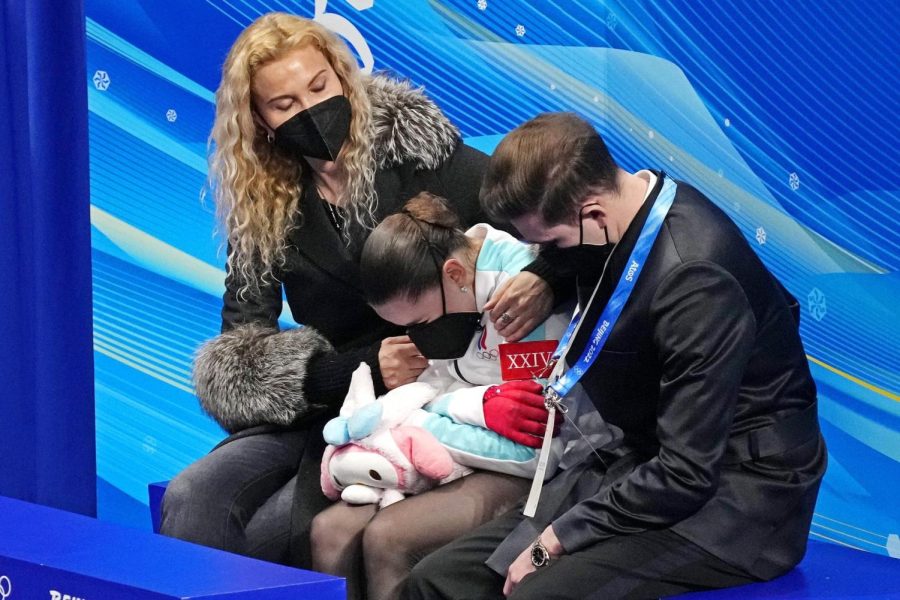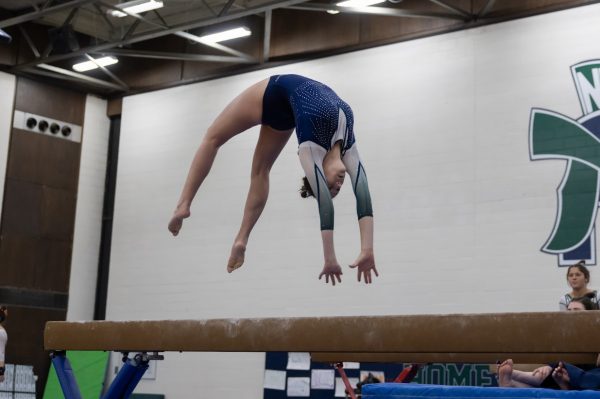Olympic guidelines side with Russian figure skater in doping scandal
Controversial decision at Winter Olympics sparks calls for clarity
Kamila Valieva reacts to her score in the women’s free skate being called at the 2022 Beijing Winter Olympics
Kamila Valieva, a 15 year-old figure skater from Russia, has been under a lot of fire recently for being allowed to compete in the Olympics after a positive drug test. From a drug test in December 2021, it was revealed that Valieva was using trimetazidine, a banned substance by the World-Anti Doping Agency, as well as L-carnitine and hypoxen, which are also both non-prohibited.
Earlier in the 2022 Winter Olympics, Valieva competed in the team figure skating event caught the attention of spectators around the world. During her performance, Valieva was able to land a quadruple jump, which is something that had never been accomplished by anyone at the Olympics. Because of this historic performance, Valieva and her team were able to take the gold medal in the event.
When it was discovered that Valieva had tested positive for several banned substances, she was in the middle of preparing for the individual figure skating event, an event for which she was the favorite to win the gold medal.
There was a lot of discussion as to whether or not Valieva should be suspended from the rest of the 2022 Olympics, but the Court of Arbitration for Sport Panel decided that it would not suspend Valieva because it was considered unfair to punish Valieva for delayed results.
Despite being cleared to compete, Valieva had an incredibly disappointing performance. She finished 4th and didn’t even make the podium after being the favorite to win.
The decision to allow Valieva to compete caused a lot of controversy. The U.S Olympic and Paralympic Committees were unhappy with the verdict, stating that “athletes have a right to know that they are competing on a level playing field” and that this “right is being denied” as a result of the verdict.
Another reason that this decision was criticized by many was because of the ruling regarding Sha’Carri Richardson during this past summer. Richardson, a sprinter on the US Olympic team, was given a one-month suspension by the US Anti-Doping Agency due to a positive test for THC. Because of the easing of cannabis policies, many believed that it was unfair that Richardson was suspended and that her use of cannabis wouldn’t give her an unfair edge over her opponents.
There are many different factors that went into both decisions regarding Valieva and Richardson, but the differing verdicts for similar situations set two vastly different precedents regarding Olympians and drug use. The International Olympic Committee (IOC) needs to decide how to approach this matter so there are clear guidelines for Olympians and how drug tests will be initiated in the future.
With how vague and unclear the system is right now, action must be taken to figure out when it is just or when it is unjust to take away a lifelong dream from these athletes.










































